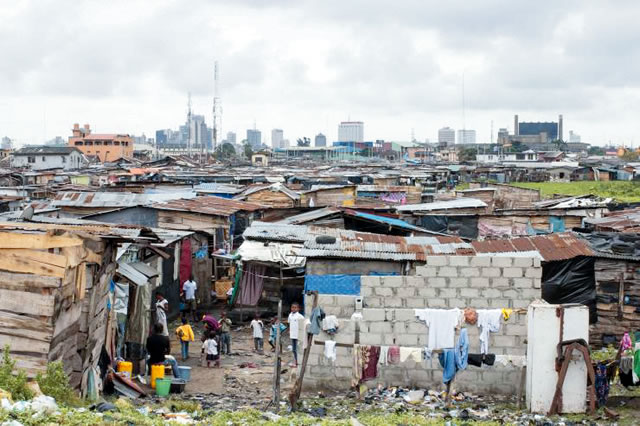
Operators in the built environment have blamed the rising slums in the country on the shortage of affordable houses for the less privileged.
In an exclusive interview with The PUNCH, the Executive Secretary of the Association of Housing Corporation of Nigeria, Toe Eniola, said families facing economic hardship were resorting to slums for housing due to unaffordable rents or the shame of returning to villages empty-handed.
He said, “With the current economic reality, people are seeking alternative means of survival, and it is not out of context to see families opting for slums as alternative housing if they could not afford soaring rents any longer.
“Those who could no longer cope may opt to go back to the village, while those who could not face the shame of returning to the village without anything tangible to show may have to resort to slum settlement. Is it normal? No, because everyone as a citizen deserves habitable housing, and in the absence of any that is affordable, the poor need to breathe and have no choice but to settle in slums.”
Similarly, the Managing Director of Fame at Oyster & Co. Nigeria, Femi Oyedele, said due to a lack of adequate housing options, people were forced to reside in slums.
He noted, “The predicament of those moving to slums is not a consequence of their actions but rather a compelled search for a suitable place to dwell. If their current living conditions fall below standards and are unsuitable for human habitation, it is the responsibility of the government.
“People do not voluntarily choose to reside in slums as an alternative to adequate housing, rather, they are compelled by circumstances beyond their control. When we designate a product as a fundamental necessity, it implies that individuals cannot function without it. A home is essential for providing shelter and rest.
“If the government fails to fulfill its responsibility of ensuring decent housing for its citizens, individuals may find themselves forced to reside in substandard conditions, including sleeping in gutters. It is not the shame of the people but the shame of the government that people cannot afford decent accommodation befitting human beings.”
Speaking on the health implications, an estate surveyor, Olorunyomi Alatise, stated that slums were not an alternative means to housing in the long run.
He remarked,” While slums can serve as housing for the impoverished when no affordable alternatives are available, residing in such areas carries significant health and safety hazards. Slums typically feature substandard construction, inadequate access to essential services like clean water and sanitation, and may be situated in perilous locations.
“Additionally, they often exhibit elevated levels of crime and violence, and residents may face limited opportunities for employment and advancement. While some individuals may turn to slums out of necessity, they are not a viable long-term housing solution.”





